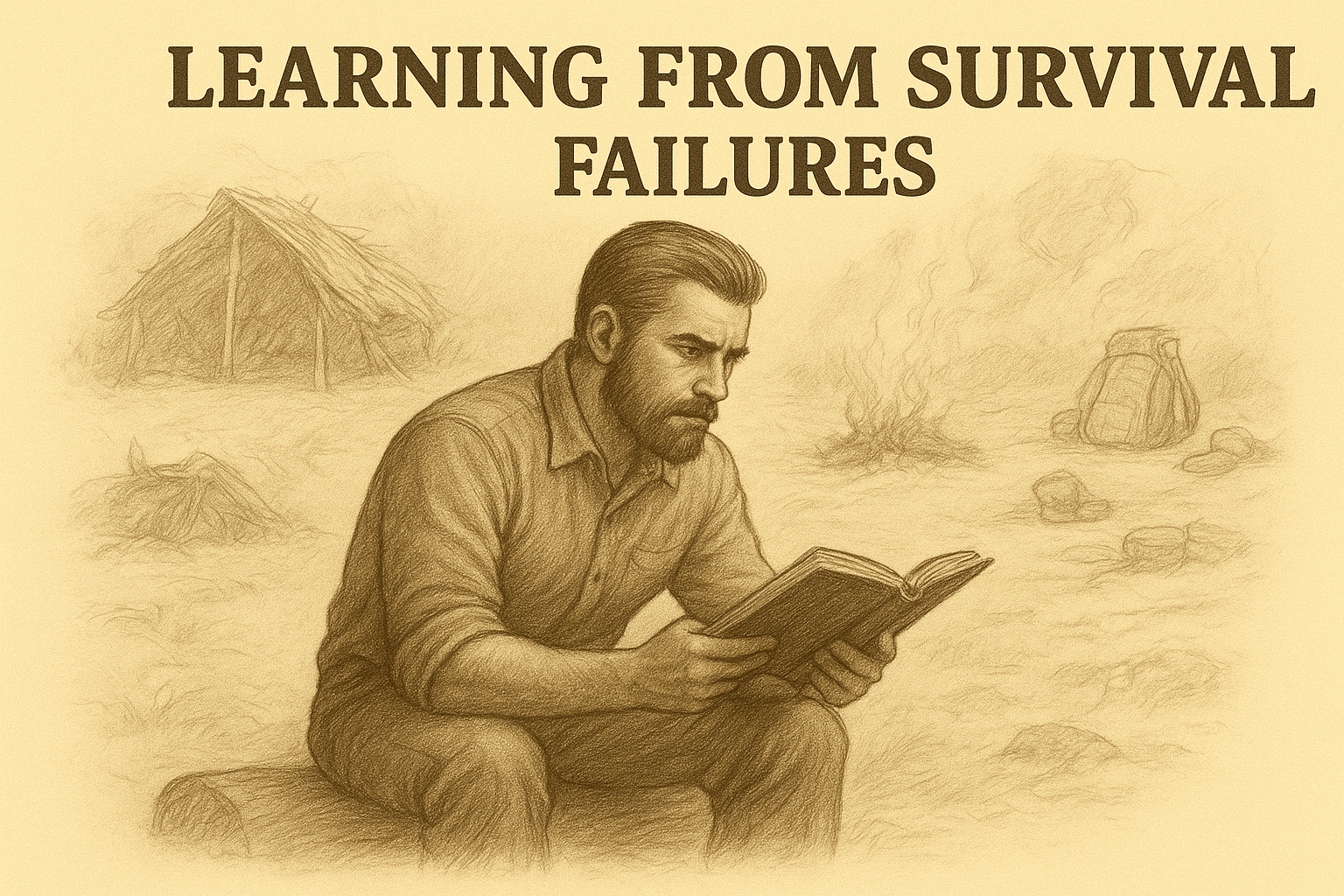Day 30: How to learn from OTHERS failures in A survivAL SITUATION
Survival Lessons from the Failures of Others
One of the best ways to learn?
Study the mistakes others didn’t survive.
In the military, we use something called an After Action Review (AAR):
What was supposed to happen?
What actually happened?
What went wrong?
What went right?
It’s a system that builds awareness, perspective, and ultimately—resilience.
Learn from Others So You Don’t Repeat It
When I hear real survival stories—especially the failures—it pushes me to ask:
“What went wrong here?”
“Could this happen to me?”
“How can I prevent this ahead of time?”
That process of backwards planning is how you avoid the survival scenario altogether.
Case Study: Pilots After World War I
After WWI, uninjured pilots were dying just hours after crashing in remote areas.
Why? They had:
No local survival knowledge
No preparation for the environment
No gear appropriate to their landing zones
Lesson:
You can be tough, trained, and physically fine—but without the right skills or gear, you die anyway.
The military learned from this by:
Analyzing what led to the deaths
Identifying gaps in training and equipment
Adjusting to prevent the same scenario again
Movement Can Be Survival
We’re often told: “If you’re lost—stay put.”
And that’s good advice in many cases.
But when time stretches or threats evolve, the rulebook may change.
Big-Picture Example:
The Jewish people survived thousands of years of persecution and displacement.
How?
They moved when survival required it
They adapted to new cultures
They blended in while holding onto their core
Lesson:
Survival isn’t always about fighting through—it’s often about knowing when to leave.
In a war-torn area, the #1 rule might be: Get out. Fast.
Use AAR on Real-World Survival Stories
From plane crashes in the Alaskan tundra
To downed aircraft off the Ivory Coast
If we study:
What gear they packed (or didn’t)
What decisions they made
What knowledge they had
Then we can do likewise—but better.
Bottom Line
Survival is a thinking person’s game.
Don’t just train yourself—study others.
Conduct After Action Reviews
Backwards-plan potential disasters
Learn from history—ancient and modern
Know when to stay, and when to move
The greatest survival strategy is prevention.
And the wisest survivalist learns from those who didn’t make it.




